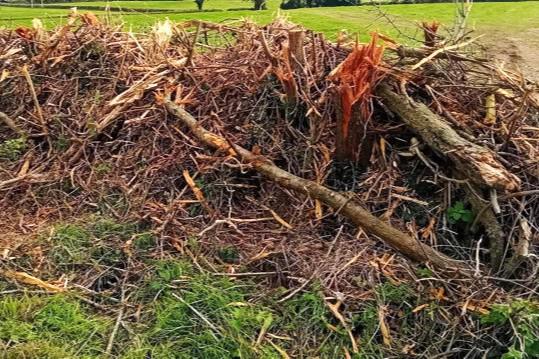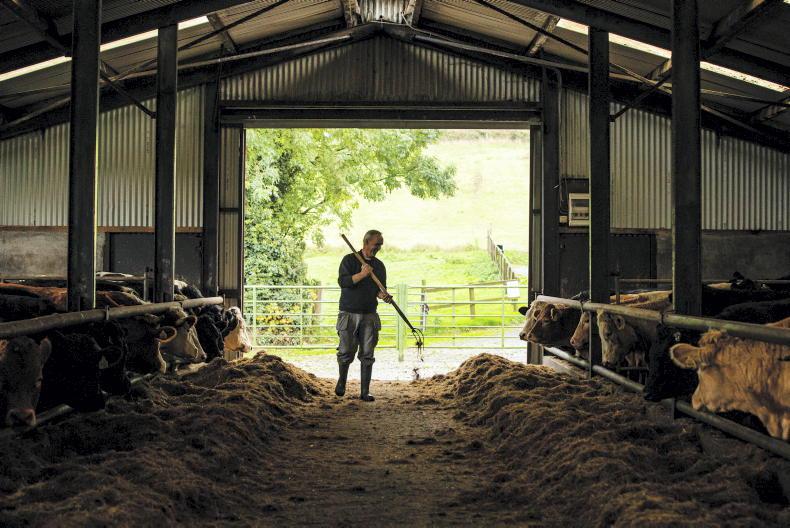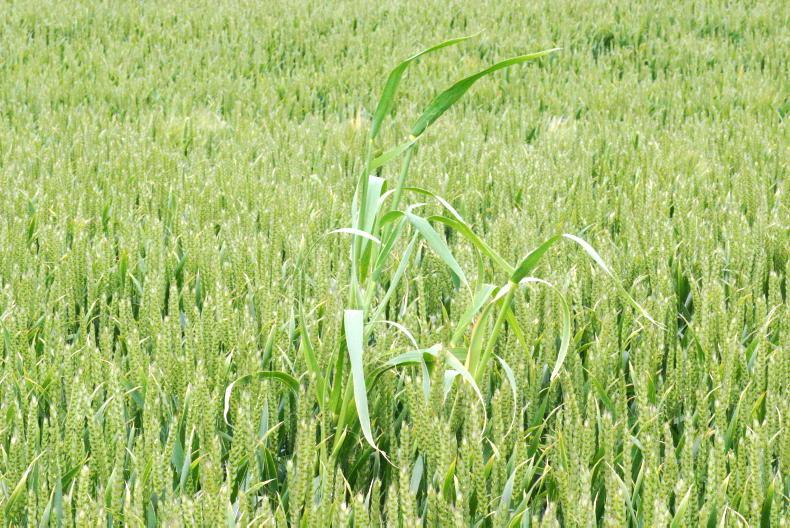Draft documents from the Department of Agriculture, seen by the Irish Farmers Journal reveal the Government’s priorities for Irish agriculture under the next Common Agricultural Policy (CAP).
The European Commission requires every EU member state to design its own strategic plan, detailing support for direct payments and rural development schemes.
The Department’s needs assessment is the foundation document for Ireland’s national CAP plan as it sets out what the Government wants to achieve in the next seven years.
Priority one on the Department’s list is to support a viable farm income and close the gap between agriculture and other sectors of the economy.
Payments for disadvantaged areas look set to continue, with support for farmers in Area of Natural Constraint (ANCs) namechecked as a priority.
A third Targeted Agricultural Modernisation Scheme (TAMS) is quite likely, with the Department identifying the need to support on-farm investments and adoption of new technologies.
Farm to Fork
Several aims of the EU’s Farm to Fork (F2F) strategy, including increasing organics, reducing antibiotic use and efficient pesticide
use are among the needs identified by Department officials too.
The F2F also advocates payments for farming carbon and these could feature in Ireland’s plan. The Government document makes incentivising carbon sequestration measures and better management of wetlands and peatlands key priorities.
There is a need to attract more young farmers by offering income supports and increasing land transfers through succession planning, according to the document. This could open the door for an early retirement scheme or a broader young farmer scheme.
Agricultural advisors are in line for CAP supports too, with the provision of continuous training to ensure consistency of advice to farmers a priority.
The draft needs assessment will now be subject to stakeholder consultation before the Department begins designing schemes and initiatives that will address the needs identified.
How will it align to a new REPS?
The Government has committed to introducing a further Rural Environment Protection Scheme (REPS), with a pilot as early as next year.
The priorities in the needs assessment that could form part of this agri-environmental scheme range from supporting extensive farming systems, improving water quality, protecting habitats and landscapes, addressing biodiversity loss, to improving soil quality and fertility.
It could also be complemented by a knowledge transfer-style programme focusing on climate and the environment. Such a scheme is on the cards as the Department intends to promote a greater understanding of climate change, air and water quality, and biodiversity issues at farm level.
Read more
Cowen confirms €1.5bn REPS
Full-time farmer favouritism and a cap on payments among new CAP proposals
Draft documents from the Department of Agriculture, seen by the Irish Farmers Journal reveal the Government’s priorities for Irish agriculture under the next Common Agricultural Policy (CAP).
The European Commission requires every EU member state to design its own strategic plan, detailing support for direct payments and rural development schemes.
The Department’s needs assessment is the foundation document for Ireland’s national CAP plan as it sets out what the Government wants to achieve in the next seven years.
Priority one on the Department’s list is to support a viable farm income and close the gap between agriculture and other sectors of the economy.
Payments for disadvantaged areas look set to continue, with support for farmers in Area of Natural Constraint (ANCs) namechecked as a priority.
A third Targeted Agricultural Modernisation Scheme (TAMS) is quite likely, with the Department identifying the need to support on-farm investments and adoption of new technologies.
Farm to Fork
Several aims of the EU’s Farm to Fork (F2F) strategy, including increasing organics, reducing antibiotic use and efficient pesticide
use are among the needs identified by Department officials too.
The F2F also advocates payments for farming carbon and these could feature in Ireland’s plan. The Government document makes incentivising carbon sequestration measures and better management of wetlands and peatlands key priorities.
There is a need to attract more young farmers by offering income supports and increasing land transfers through succession planning, according to the document. This could open the door for an early retirement scheme or a broader young farmer scheme.
Agricultural advisors are in line for CAP supports too, with the provision of continuous training to ensure consistency of advice to farmers a priority.
The draft needs assessment will now be subject to stakeholder consultation before the Department begins designing schemes and initiatives that will address the needs identified.
How will it align to a new REPS?
The Government has committed to introducing a further Rural Environment Protection Scheme (REPS), with a pilot as early as next year.
The priorities in the needs assessment that could form part of this agri-environmental scheme range from supporting extensive farming systems, improving water quality, protecting habitats and landscapes, addressing biodiversity loss, to improving soil quality and fertility.
It could also be complemented by a knowledge transfer-style programme focusing on climate and the environment. Such a scheme is on the cards as the Department intends to promote a greater understanding of climate change, air and water quality, and biodiversity issues at farm level.
Read more
Cowen confirms €1.5bn REPS
Full-time farmer favouritism and a cap on payments among new CAP proposals










SHARING OPTIONS